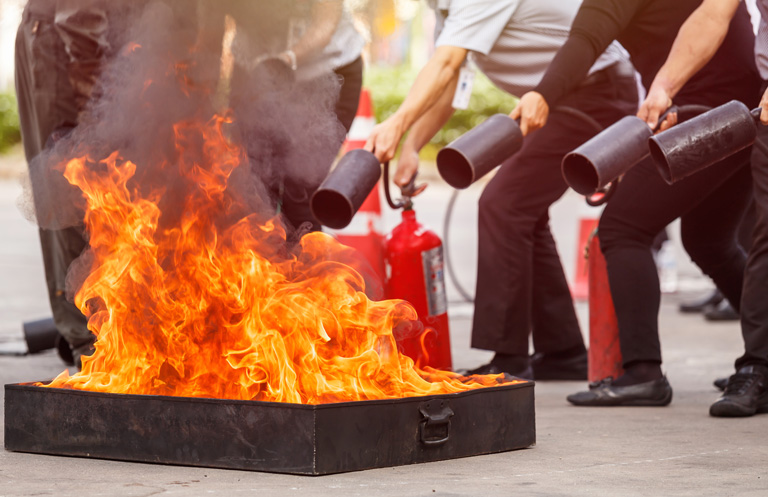
This 4-hour training course is designed to provide participants with the knowledge necessary to fight a fire.
It is intended to help anyone who may be exposed to fire or potential fire hazards in their workplace, better understand the potential uses of the fire extinguisher as well as their limitations with the first portion of the course spent in the classroom where a series of demonstrations are used to ensure that the participants fully understand the nature of fire and firefighting techniques. This course is designed to teach a level of competency, ensuring that the students will be confident in the actions taken in the event of a fire. The remainder of the course is spent on the participants having actual hands-on training in fighting a variety of live fires.
Upon completion of the practical and written examination, successful participants will receive a certificate that is valid for three years.
Enrollment Price: $450.00/seat *
* Price may differ per class.
The learning objectives of this course are to ensure that students demonstrate an understanding of the following:
The standards in this program meet or exceed all requirements of CSA, Canada Labour Code, Occupational Health and Safety regulations for all provinces and territories (excluding Quebec), National Firefighting Prevention Association Standards (NFPA) and Industry Recommended Practice 18.